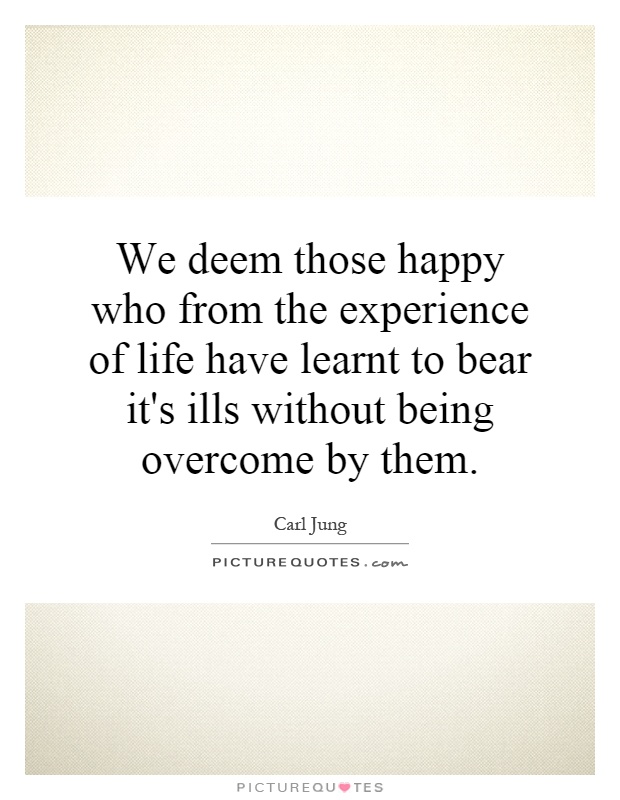We deem those happy who from the experience of life have learnt to bear it's ills without being overcome by them

We deem those happy who from the experience of life have learnt to bear it's ills without being overcome by them
Carl Jung, a renowned Swiss psychiatrist and psychoanalyst, believed in the importance of facing life's challenges and adversities in order to achieve true happiness and fulfillment. In his work, Jung emphasized the idea that individuals who have learned to bear life's ills without being overcome by them are the ones who are truly happy. This concept aligns with Jung's belief in the process of individuation, which involves the integration of the conscious and unconscious aspects of the self to achieve a sense of wholeness and self-realization.Jung believed that life is inherently filled with struggles and difficulties, and that it is through facing and overcoming these challenges that individuals can grow and develop psychologically. He viewed adversity as an essential part of the human experience, and believed that avoiding or denying life's hardships only leads to further suffering and stagnation. Instead, Jung advocated for embracing life's difficulties and using them as opportunities for personal growth and transformation.
According to Jung, those who have learned to bear life's ills without being overcome by them have developed a sense of resilience and inner strength that allows them to navigate life's challenges with grace and dignity. These individuals have cultivated a deep sense of self-awareness and acceptance, and are able to confront their own shadow aspects and integrate them into their conscious personality. By facing their fears, insecurities, and vulnerabilities head-on, they are able to transcend their limitations and achieve a greater sense of wholeness and authenticity.
In Jungian psychology, the process of individuation involves a journey of self-discovery and self-actualization, in which individuals strive to integrate all aspects of their psyche in order to achieve a state of psychological balance and harmony. Those who have learned to bear life's ills without being overcome by them are able to progress along the path of individuation, and ultimately achieve a sense of inner peace, fulfillment, and happiness.












 Friendship Quotes
Friendship Quotes Love Quotes
Love Quotes Life Quotes
Life Quotes Funny Quotes
Funny Quotes Motivational Quotes
Motivational Quotes Inspirational Quotes
Inspirational Quotes